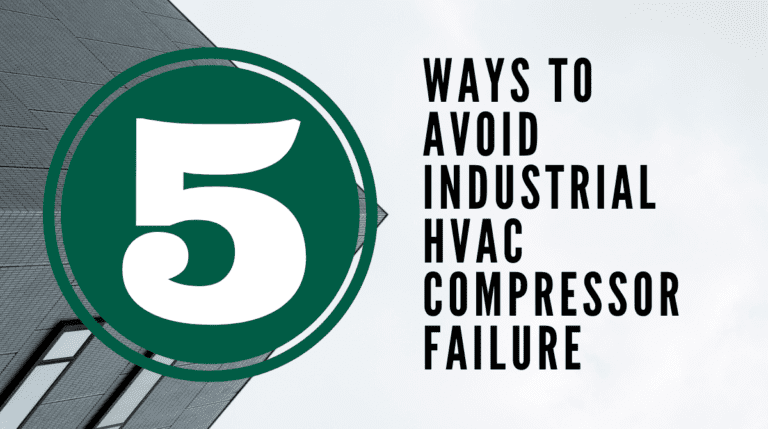 HVAC/R compressors, such as the 06ET275360, are the heart of all air conditioning or refrigeration systems. During the cooling process, the compressor itself compresses the refrigerant into a high-pressure gas. If the compressor fails or locks up, the compressor may need to be replaced. Of course, replacing an industrial HVAC compressor or entire system can be an expensive affair.
HVAC/R compressors, such as the 06ET275360, are the heart of all air conditioning or refrigeration systems. During the cooling process, the compressor itself compresses the refrigerant into a high-pressure gas. If the compressor fails or locks up, the compressor may need to be replaced. Of course, replacing an industrial HVAC compressor or entire system can be an expensive affair.
What Causes Compressor Failure?
To know how to prevent the HVAC compressor from failing, it’s important to understand what causes it to fail in the first place. There are four main causes of compressor failure:
Problems with the Refrigerant
The compressor requires the right amount of refrigerant charge to do its job effectively. Overcharging or undercharging the unit during a maintenance cycle will degrade the performance of the compressor. When the compressor is not properly charged, it loses the heat balance it needs to work properly, thereby experiencing mechanical strain.
Constricted or Partially Blocked Tubes/Suction Lines
Constricted or blocked tubes also lead to industrial HVAC system failures. Blocked tubes or suction lines are often caused by accumulation of debris, leakages, or structural failure of the unit. It is important to carry out routine maintenance to remove accumulated debris from the HVAC suction lines.
Power or Electrical Malfunctions
Sometimes, electrical malfunctions due to an unreliable power source or occasional surges can make the compressor unit fail. Power surges can damage the electrical wiring or short some of its components.
Electrical problems might be partial and, therefore, difficult to notice until it’s too late. Regular inspection of the electrical components of the AC unit is crucial to preventing malfunctions. A compressor will operate, or attempt to operate, as long as it is receiving an electrical current. Without proper safetys on the system a compressor failure may look like it was caused by an electrical malfunction when in fact there was a bigger problem that preceded the motor failure.
Problems with the Condenser Unit
A faulty or dirty condenser can also affect the performance of the compressor. The condenser is often exposed to easily preventable issues such as dust accumulation, dirty coils, and rust. A malfunctioning or dirty condenser will make the compressor strain since it relies on it for heat dispersion. Some debris might also get into the compressor and ruin the moving parts.
Identifying the causes of compressor failure is critical to ensuring your unit operates optimally all the time. Here are five tips for preventing industrial HVAC compressor failure:
Carry Out Preventive Maintenance
Routine preventive maintenance should be carried out on any industrial appliance to prevent failures. Most problems with HVAC compressor units are preventable. A well-maintained and regularly serviced compressor should last for many years without failing.
Here is a checklist of routine preventive maintenance tasks you should carry out on an industrial HVAC compressor:
- Visual inspection. Confirm that the compressor has no discolored or burned electrical wires, vibration, leakages, or whizzing sounds.
- Electrical inspection. Switch on the unit and use a voltage tester and currency measurement tools to check its voltage. Compare the voltage with the manufacturers recommended voltage, which is usually printed on the compressor.
- Startup inspection. Check that the unit starts without hesitation and produces no whizzing or cracking sounds.
Charge the Compressor Correctly
Many compressor failures are caused by incorrect charging. The best way to prevent compressor failure resulting from incorrect refrigerant charging is by ensuring it is installed and serviced by a reputable contractor.
Clean and Maintain the Condenser Unit
Poorly maintained outdoor condenser units can accumulate dirt over time and malfunction. Keep your condenser unit in tip-top condition to prevent the compressor unit from straining and extend its lifespan.
Proper Piping and Mounting
Industrial HVAC systems have elaborate piping and airflow systems that determine how the compressor works. The way that a compressor unit is mounted can also affect its performance. If the piping and airflow system is problematic, the compressor will have problems with pressure and the overall operation.
AC piping systems can be expensive to fix. Therefore, ensure any piping work is done correctly the first time.
Oil and Lubrication
Proper compressor lubrication is a critical maintenance task that will keep the unit working properly. The oil not only lubricates the compressor’s moving parts but is also an insulator and a sealant. Changing the compressor oil should, therefore, be on your list of routine preventive maintenance checklist.
Most problems that lead to compressor failure are not related to the unit itself. Moreover, it doesn’t make sense to replace a failed HVAC compressor if you don’t know the cause of the failure. You can increase the lifespan of your compressor by ensuring it is maintained by a qualified contractor.
If you need to replace your compressor, get a new OEM or remanufactured one from some of the top brands such as Danfoss, Frascold, Bitzer, Hitachi, Copeland, among others. These, and more, compressors are available at Compressors Unlimited.












